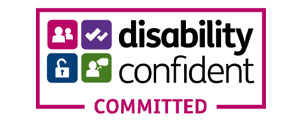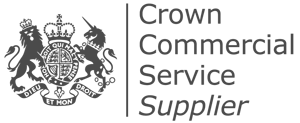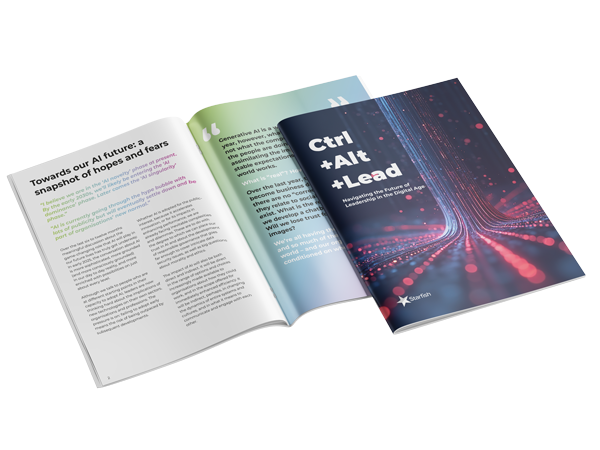How current are you in the new leadership economy?
Any time of uncertainty, upheaval and distraction inevitably leads to change; to shifts in power and influence that ultimately shape the development of the cultures we live and work in. In a fast-moving digital age, instability creates space for new thinking and philosophies to develop and movements to take hold at pace, and at scale. Regardless of the stance we take individually on any number of open debates, it’s hard to argue that we don’t live in a time of tension, conflict and even stand off as the principles that will govern how we run our institutions and value our communities continue to be negotiated.
Looking back on them from April 2023, the pandemic years of 2020-2022 have formed part of a broader, dramatic period of turbulence, and progress, on many different levels. When it comes to what we value in the running and governance of our institutions we are arguably in a ‘new’ skills economy, illustrated by an emerging premium on certain values and behaviours that are suited to flatter organisations and cultures, where power and influence is more distributed, and business happens increasingly through negotiation and partnership.
In the new economy, modern institutions are more equitable in their structures, and in their cultures. As ever, there is a balance of course – all organisations require direction and order, yet the truly modern leaders of the post pandemic age exhibit very clearly a series of attributes that would have been considered ahead of their time only five years ago. In an equitable organisation, consultation may be more frequent yet there may also be greater onus on employees to accept their own personal accountabilities in getting the operation to work smoothly. As ever, where power is more distributed, so is accountability.
The top 10 leadership attributes we observe in the new cohort of Chief Executives are:
- They balance the clarity and order required to set direction effectively with a ‘low ego’ style in which they openly acknowledge that the institution doesn’t have all the answers.
- They’re emotionally intelligent, inspiring workforces to follow them, often through intensive and unsettling periods of change, through openness and unerring commitment to goals and values.
- In settings where decision making is more devolved than ever before, and where employees demand increasing inclusion, they set an expectation that the workforce also has to assume greater accountability if the deal is to work.
- They are open to challenge and increasingly personally resilient.
- Many are big picture people with a willingness to bring constructive and bold challenge to whole systems and sectors.
- They tend to be collaborative and outward facing, having accepted that more can be achieved at scale by joining forces.
- They exhibit the confidence to occupy exposed positions in increasingly unpredictable environments, in the knowledge that a more agile and mission driven organisation is behind them.
- They are increasingly visionary.
- They demonstrate strong personal motivation, often expressed through a commitment to social value or social justice.
- They are committed to the mission and manage performance, collectively and individually, through moral imperative which underpins attitudes to performance.
There is inevitably greater pressure to evolve at pace in sectors that are most exposed to diverse populations of changing attitudes. Other institutions are slower to change for many reasons, yet they recognise subtle shifts in what is needed to lead and govern well. But there have been many stories covered by the press in recent weeks – whether about the role of Government Ministers, the culture of the Metropolitan Police and devolved governments, or the workers revolt at John Lewis – that perhaps suggest a prevailing new economy, in which we all have a say.
Top Talent: Regeneration and Growth
The growth and infrastructure agenda remains central to the government’s mission, and local authorities across the country are key drivers.
Mastering the Chair and Chief Executive Partnership: Insights from Our Latest Webinar
We recently hosted the second session in our Aspiring Chief Executives webinar series, focusing on a crucial theme for any leader entering the charity sector: Mastering the Chair and Chief Partnership. The session, led by our own Louise Beales, Prinicpal Consultant, and special guest Ciara Eastell, an experienced charity CEO, Chair, and coach, both provided a wealth of practical advice for those stepping into executive roles, especially within non-profit and charitable organisations.
Mastering the Chair/CEO Partnership: Your First 100 Days and Beyond – A Starfish Search Webinar
Starfish is dedicated to supporting leaders at every stage of their journey and we know that one of the hardest steps is how to go about finding the right opportunity, and what to expect when you get your first chief executive role. We are pleased to be running a webinar for our new Aspiring Chief Executives programme.
ACCREDITATIONS


ESPO is a public sector owned professional buying organisation (PBO), specialising in providing a wide range of goods and services to the public sector for over 40 years. Starfish Search has been awarded a place on ESPO’s Strategic HR Services framework (3S). Services we offer under the framework include: Lot 1, Executive and Managerial Interim Recruitment Lot 2, Executive and Managerial Permanent Recruitment.


Starfish are proud to be certified Disability Confident Committed. This scheme provides employers with the knowledge, skills and confidence needed to attract, recruit, retain and develop disabled people in the workplace.


Crown Commercial Service supports the public sector to achieve maximum commercial value when procuring common goods and services. In 2020/21, CCS helped the public sector to achieve commercial benefits equal to £2.04bn - supporting world-class public services that offer best value for taxpayers. Starfish Search has been named as a supplier on Crown Commercial Service’s Executive and Non-Executive recruitment. Services we offer under the framework include: Lot 3 - Non-Executive and Public Appointments.


Bloom, launched in 2012 is the UK’s leading marketplace for professional services. They provide an end-to-end solution for the procurement, contract management and payment of all professional services, via the compliant NEPRO³ framework. Their public sector clients have access to 20 professional services categories and over 4500 accredited suppliers. Bloom provides swift routes to market via either direct award or mini competition. Starfish is an accredited supplier to BLOOM; our services can be accessed via this framework - Executive and Non-Executive Search and Interim Management.
Join the starfish team
We hire people who bring insight, integrity and ambition to their work. If you’re ready to contribute to shaping the future of leadership and you want to explore our current opportunities please get in touch.
